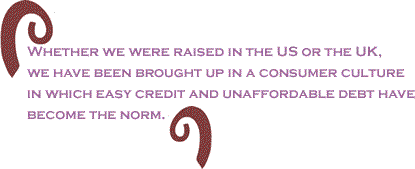
|
||||||||||||||||||||||
|
||
 |
||
Note: BlackCommentator.com welcomes Lola Adesioye as a columnist and member of the Editorial Board. On April 7, New York Times columnist Nicholas Kristof wrote a piece in the NY Times about Zimbabwe. �Ordinary people,� he wrote �said time and again that life had been better under the old, racist, white regime of what was then called Rhodesia.� Really Kristof?! It�s funny that Kristof should have that view. Just last week I was on the phone to a Zimbabwean, London-based friend of mine (who was part of the team behind the very successful Zimbabwe Pearl Event that recently took place in London) and we were talking about the importance of hearing from the mouths of Zimbabweans who live and have family in Zimbabwe rather than through the filter of the far-from-partial Western media. Very rarely do we hear from Zimbabweans directly. And when they are quoted by American or British media, invariably it tends to be along the lines of �we hate Mugabe, bring back racism�. But this doesn�t fit with the conversations I�ve personally had with many a Zimbabwean. I haven�t been to Zimbabwe. I have lived in South Africa though, and funnily enough I heard people � non black people � attribute the same point of view to South Africans: that they preferred life under apartheid. Yet, I never heard that come from the mouths of black South Africans who I met and hung around with. There�s no doubt that Kristof spoke to Zimbabweans for his column, but I know that not every Zimbabwean feels the way that he described. If he looked further, he most probably would have found those who don�t support his point of view and that have a much more nuanced and sophisticated view of Mugabe and their country than he gives black Zimbabweans credit for. But then he probably would not have written about them. -0- March was International Women�s Month.� Below is a video commentary by Ms. Adesioye titled �Black Women's Wealth�. -0-
The commentary below appeared originally in The Guardian Online Teach students financial literacy Barack Obama's new student loans legislation won't help young people who have grown up accepting that debt is the norm. After graduating from Cambridge, I considered doing further study in America. I checked out some of the top colleges and looked into how much it would cost to study at them. I was looking at a minimum of $40,000 � per year � just for tuition alone. It was off-putting to say the least. First, I had already had a degree from one of the best universities in the world that had cost me �1,500 per year; to pay $40,000 per year to go to any other college seemed absurd. Second, it would have meant taking out further, huge loans with commercial interest rates, which I was unwilling to do.
Most American students don't have that choice if they wish to study. I have a few American friends who graduated with debts in the region of $100,000, and went to work in professions which pay them an annual salary which is nowhere close to that. They will be paying those loans off for a long, long time � and goodness knows what the actual cost of the loan is when you take the interest into account. If you want to go to college here in the US, especially a top one, you're looking at a minimum of around $50,000 per year to do so. There's no doubt, therefore, that the student loans legislation � which cuts out private lenders as the middlemen in federal lending � that has just gone through Congress will provide some relief to the many millions of American students who are considering going to college and taking out federal loans in the future. But ultimately, the new measures � which were put in place to assist students financially and to provide greater access to higher education for more students � are lacking a vital component. In fact, it is like putting a sticking plaster on a gaping wound. The gaping wound is the increasing level of financial illiteracy of my generation and those coming behind. President Obama has talked about being on the side of students rather than banks. If he is, he needs to start implementing financial literacy into the education system � and soon. Despite this legislation, a large number of college students will still continue to take out private loans, some of which are known to have practices and terms similar to those which fuelled the sub prime crisis; students are also defaulting on their loans in larger numbers. Basically, it matters little whether or not there are lower interest rates if one does not know how to manage one's money or make beneficial financial decisions in the first place. Whether we were raised in the US or the UK, we have been brought up in a consumer culture in which easy credit and unaffordable debt have become the norm. The economic crisis is a large-scale reflection of the normalcy of individual debt in modern day society. Student loans are the first introduction many young people get to the world of debt. For American students even this is compounded due to the expensive nature of college. At the age of 17 and 18, young Americans have started to learn that it is OK to borrow tens, if not hundreds, of thousands of dollars. And of course that amount increases for those who do graduate studies. After getting their first taste of it, they will go on to take out credit cards, huge mortgages, car loans and other types of credit. Although it is said that there is "good" debt and "bad" debt the reality is that debt is debt and the people who generally benefit most from it are the creditors.
BlackCommentator.com Editorial Board member Lola Adesioye is a, writer, socio-political thought leader and, activist. Her grandfather was one of the forefathers of journalism in Nigeria. She holds a master�s degree in Social & Political Science from Cambridge University. Lola�s writing covers topics such as race and African-American culture from a black British perspective, American politics, music, women�s issues and travel. . Her blog is. lolacreative.com . She writes a weekly column for The Guardian Online. You can also visit her on twitter, facebook and youtube. Click here to contact Ms. Adesioye. |
||
If you would like to comment on this article, please do so below. There is a 400 character limit. You do not need a FaceBook account. Your comment will be posted here on BC instantly. Thanks. Entering your email address is not mandatory. You may also choose to enter only your first name and your location.
|
||
Thank you very much for your readership. |
||
| Any BlackCommentator.com article may be re-printed so long as it is re-printed in its entirety and full credit given to the author and www.BlackCommentator.com. If the re-print is on the Internet we additionally request a link back to the original piece on our Website. | ||
| |
||
April 15, 2010 |
| Executive Editor: David A. Love, JD |
| Managing Editor: Nancy Littlefield |
| Publisher: Peter Gamble |
| Est. April 5, 2002 |
| Printer Friendly Version in resizeable plain text format |
 |
 |
 |

|
 |
| |
| |















































